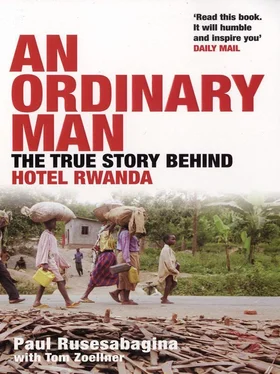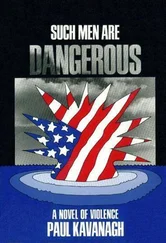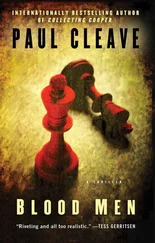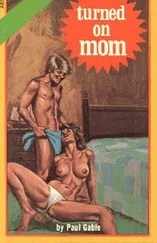The irony is that we could have been a long way down that road if we had had the discipline. After the genocide we still had two hundred state courthouses, known as tribunals, in various locations around Rwanda. Judges were initially hard to find because many had been killed or jailed or fled the country, but the ministry of justice was ready to start trying cases in the spring of 1995. But the Army stopped the first trials and the hearings did not resume for two years, which passed agonizingly slowly for those with nothing to do but look at the patterns of the sun on jailhouse walls. Justice has been a stop-and-start trickle like this ever since. And the waiting goes on for the accused, as does the mounting anger.
This failure of justice is critical, for it leaves our nation still in pieces and in danger of exploding again before long. Breaking the cycle will not be easy. It requires the application of true justice. Without justice there will be more massacres, for widespread injustice never fades away. It ferments and stinks and eventually bursts into bloody flowers.
I am convinced that one of the strongest engines of the Rwandan genocide was the culture of impunity that was allowed to flourish after the revolution against the colonists began in 1959. Rwandans killed their neighbors just to take their houses, people killed people for their banana trees, people leaped over the counters of abandoned general stores and started selling the merchandise as if they were the rightful owners. It was a huge mistake for our government to let this blatant larceny go unanswered. Even today there are people living in houses that don’t belong to them and selling merchandise they never bought. This is what I call impunity. A person’s private property may seem like a small thing when held in balance against their life, but the success of a small crime grants a kind of permission to carry out worse deeds. It is like that famous American parable about a row of windows in an abandoned factory. If they stay intact nobody will throw rocks at them. But if one window is broken and goes unrepaired, the rest will get shattered by vandals in quick succession, because the public gets the idea that nobody cares about the windows. A sense of social disorder creates more chaos. As a nation we did not care about our windows forty-seven years ago, and I am afraid we are not taking good care of them now.
Another problem is the current government of Rwanda. To its great credit it has taken steps to stop the identification of anybody as a Hutu or a Tutsi. In many parts of Rwanda today it is now considered rude to discuss somebody’s heritage, and this is a good thing. But the changes have gone no further. Rwanda is a country that has still never known democracy. The current president, Paul Kagame, was the general of the Rwandan Patriotic Front army that toppled the génocidaire regime and ended the slaughter, and for this he deserves credit. But he has exhibited many characteristics of the classic African strongman ever since taking power. In 2003 he was reelected with 95 percent of the vote. There is nobody in the world that can call results like that a “free election” and keep a straight face.
Moreover, the popular image persists that Rwanda is today a nation governed by and for the benefit of a small group of elite Tutsis. Kagame’s government has done little to show the world a different picture. The Parliament is widely known to be a rubber stamp for the will of the president. Those few Hutus who have been elevated to high-ranking posts are usually empty suits without any real authority of their own. They are known locally as Hutus de service, or “Hutus for hire.” So there is no real sharing of power. What exists now in Rwanda is a new version of the akazu, or the “little house” of corrupt businessmen who have long surrounded the president. The same kind of impunity that festered after the 1959 revolution is happening again, only with a different race-based elite in power. We have changed the dancers but the music remains the same.
I said earlier that what my country needs most of all is to sit together around a table and talk. Perhaps we will not talk as the best of friends, not yet, but at least as people with a common history who can respect each other. That discussion never happened, not once in Rwandan history. The dictates of the mwami were followed by the plunder of the country by Belgians and then the corrupt ethnic visions of Habyarimana, with the balance of power always bouncing back and forth between the races, and neither side learning anything from the ashes and the bodies. We never talk about it; we just steal what we can whenever our turn comes around.
The way that modern nations have that discussion around a table is through the democratic process and the civilized exchange of ideas in a respectful format. But Rwanda has a cosmetic democracy and a hollow system of justice, and this is why I think it is far too soon to say Never Again for my country.
We are not binding up the wounds of history. And I can assure you of this as a Rwandan: History dies hard.
I was not the only one who said no. There were thousands of other people in Rwanda who were also unimpressed by the propaganda and put their lives in jeopardy to shelter fugitives. Individual acts of courage happened every single day of the genocide. Some were partial killers, it is true, showing compassion to some and murdering others. But there were many who refused completely, and there would have been almost no survivors of the genocide without the thousands of secret kindnesses dispensed under the cover of night. We will never know the names of all those who opened their homes to hide would-be victims. Rwanda was full of ordinary killers, it is true, but it was also full of ordinary heroes.
There was a Muslim man, for example, who concealed up to thirty people in his sheds and outhouses. One of his guests reported the following: “The Interahamwe killer was chasing me down the alley. I was going to die any second. I banged on the door of the yard. It opened almost immediately. He took me by the hand and stood in his doorway and told the killer to leave. He said the Koran says if you save one life it is like saving the whole world. He did not know it is a Jewish text as well.”
There was also Father Célestin Hakizimana, who presided over St. Paul ’s Pastoral Center in Kigali. He stood in contrast to those other priests and ministers who either condoned the genocide or slunk away when danger came. Father Hakizimana turned his church into a shelter for over two thousand people and refused to budge to the demands of the militia.
There was Damas Mutezintare Gisimba, who received four hundred hunted children into his orphanage. Many of them were hidden in chambers in the ceiling, along with prominent politicians. Gisimba also roamed around Kigali poking through the stacks of dead bodies piling up all around. He found several people not yet dead and took them into his care.
There were so many others. A farmer saved people by hiding them in trenches on his land and covering them up with plants and banana leaves to make it look like an ordinary field. An elderly woman pretended to be a sorceress and threatened to call down the power of the gods on any killers who tried to harm the people in her protection. A mayor used his own police force to fight the Interahamwe and was killed for his actions. Schoolteachers hid their hunted students in sheds and empty classrooms. Some of the names of these heroes are known, but most are not. Their good deeds are lost to history. The murders were anonymous and irrational, but the kindness and the bravery were there in scattered places too, and that is a big part of what gives me hope for the future.
What did these people have in common? I believe they all shared the long vision. They had an ability to see through the passing moment and to understand that the frenzy that had gripped Rwanda was a temporary condition at best. They acted decently, as was appropriate for decent times, and did not believe the world to be anything less than an essentially decent place, despite the onset of a collective insanity. Their body temperatures did not fluctuate with the changing environment. All these ordinary heroes believed that balance would one day be restored.
Читать дальше











![Paul Finch - A Wanted Man [A PC Heckenburg Short Story]](/books/702381/paul-finch-a-wanted-man-a-pc-heckenburg-short-sto-thumb.webp)
